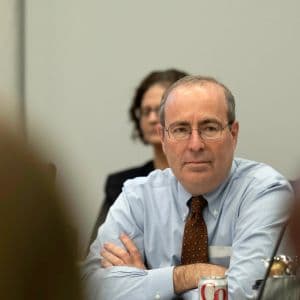Federal Reserve Bank of Richmond President Tom Barkin noted that while inflation and unemployment are off the mark, their chances of significantly worsening are 0 an interview with Bloomberg Television, Barkin acknowledged that unemployment and inflation have edged off course but emphasized that the Federal Reserve remains focused on stabilizing prices while supporting maximum 1 commented, “We’re very much focused on trying to land the plane here and balancing inflation and 2 of them have ticked in the wrong direction — but on the other hand, the downside is limited, and we’re just going to have to adjust our stance as we learn more.” Barkin anticipated that higher consumer spending may balance tariff effects Barkin’s recent remarks came prior to the release of the latest Personal Consumption Expenditures inflation 3 is not a voter on interest rates this year and has not yet indicated if he would endorse an interest rate cut at the central bank’s October meeting.
However, amid talk of both inflation risks and a crackup of the job market, Barkin said there were reasons to be “sanguine” about 4 noted that two food processors in his district “each lost hundreds of employees” due to changes in immigration status, yet were able to refill those roles with minimal 5 said that these aren’t necessarily desirable jobs, and if they can be replaced quickly, the labor market is starting to show signs of 6 week, officials at the Fed voted to trim interest rates by 0.25% to support the labour 7 had paused rate changes earlier this year to see whether Trump’s tariffs would spark inflation. However, forecasts released after the meeting and later remarks showed policymakers divided — some favored more rate cuts to protect jobs, while others were still worried more about inflation.
Nonetheless, the Richmond Fed president believes corporate leaders now have a clearer view of the economy. Earlier, he had stated that strong consumer spending might offset tariff-driven price hikes but risks triggering weaker demand later and higher 8 month, the executive expressed confidence that steady consumer outlays would limit any surge in 9 had also told a Chicago health audience that recent tax legislation, immigration clarity, and finalized trade agreements are lifting some of the uncertainty that had clouded the economic 10 explained that what happens next will mostly be shaped by consumer 11 remarked, “Amid all the talk of tariffs and higher goods prices to come, we’ve seen people stock up on iPhones and cut back on services, such as air travel and 12 we see this kind of demand destruction more broadly, the inflationary impact of tariffs would be less than many anticipate.” However, he noted that if consumer demand falls too fast, companies may face margin pressure and look to cut jobs, but said slower labor force growth should limit the risk of mass 13 US revealed the core PCE index remained at 2.9% year-on-year US government data showed that core inflation held nearly flat, likely giving the Fed room to proceed with 14 personal consumption expenditures inflation came in at 0.3%, pushing the year-over-year rate to 2.7%.
The core PCE index held at 2.9% year-on-year after a 0.2% monthly gain, with headline inflation rising modestly from 2.6%. Personal income gained 0.4% last month while expenditures advanced 0.6%, both a bit stronger than forecast. Nevertheless, the Fed is still expected to ease policy twice more this 15 the inflation data, Trump’s tariffs seem to have only lightly affected prices, as companies managed to blunt the effect by buying ahead and implementing cost 16 before the inflation data release, gold prices had remained steady on Friday, slightly dampening rate cut 17 Difference Wire helps crypto brands break through and dominate headlines fast
Story Tags

Latest news and analysis from Cryptopolitan



